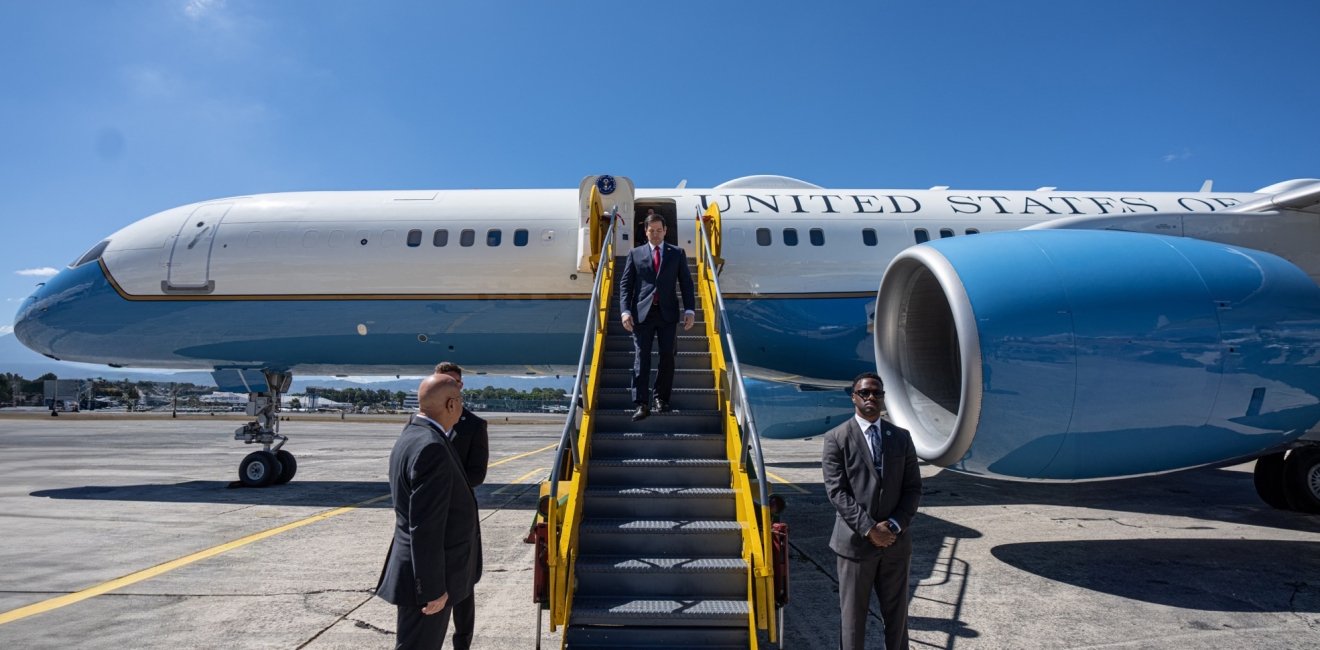
A blog of the Latin America Program
Secretary of State Marco Rubio traveled to Central America at a moment of great expectations, and confusion, in the region. While the Panama Canal and migration topped his to-do list, another important item on his agenda was security and the fight against organized crime. Unfortunately, Rubio’s job was made more difficult as a result of President Trump’s decision to dismantle US foreign assistance programs designed to reduce violent crime both in Latin America and in the United States.
For many years, Republican and Democratic presidents and lawmakers in both parties have supported security assistance programs to fight crime and public corruption, including by training foreign law enforcement agencies in modern crime fighting techniques and by creating alternatives for individuals vulnerable to recruitment by gangs and organized crime groups.
Those programs were premised on the basic assumption that it costs less blood and treasure for the United States to train foreign law enforcement agencies and prosecutors and deprive criminal organizations of their workforce than to confront these organizations as they expand throughout the region and into communities in the United States.
Now, however, security assistance programs in Central America are caught up in the US foreign aid freeze, including assistance from the State Department’s Bureau of International Narcotics Control and Law Enforcement Affairs. That includes vetting to weed out corrupt cops, training in forensic investigative skills, and specialized courses for prosecutors to conduct wiretaps and investigate money laundering. INL also supports Drug Enforcement Administration, FBI, and Department of Homeland Security programs to fight youth gangs and disrupt drug smuggling and human trafficking. All of these programs are now at risk.
USAID efforts to provide incentives for children not to join gangs are also shutting down. That includes a program that provides education and job training to boys and girls in northern Honduras who might otherwise be recruited by gangs. The abrupt loss of these programs will lead to greater hopelessness, more violence, and more migration to the United States.
“There is little doubt that reform is needed for these programs. But simply shutting down these programs and withdrawing USAID personnel and other experts is penny wise and pound foolish.”
There is little doubt that reform is needed for these programs. In some cases, the United States overwhelms well-intentioned local partners with too much money too fast. In other cases, international NGOs and contractors charge excessive overhead, leaving few resources for organizations on the ground. Even so, simply shutting down these programs and withdrawing USAID personnel and other experts is penny wise and pound foolish. The problems will be all the more difficult to solve once the United States inevitably concludes that it should resume security assistance to Central America.
In the meantime, the US government might be tempted to go it alone, including through potential military action in Mexico to fight drug cartels. Even if that approach succeeded in Mexico, the cartels would ultimately relocate, a “Whack-a-mole” challenge well-known to security experts. That is why building local law enforcement capacity and providing youths alternatives to gang memberships are the only durable solution, unless the United States is willing to foot the bill to police the entire region.
The traditional approach to foreign aid in this region does not offer a quick fix, and a review and adjustment to US security assistance is a sensible strategy for a new administration. Just this week, during his visit to Guatemala, Rubio said he would unfreeze USAID funding for anti-drug cooperation, after Guatemala agreed to receive additional deportation flights and expand commercial relations with Taiwan. That was encouraging. Shutting down long-term assistance programs lock, stock, and barrel would be counterproductive for US partners and for the security of the United States.
Author

Director of Policy and Strategic Initiatives, Seattle International Foundation

Latin America Program
The Wilson Center’s prestigious Latin America Program provides non-partisan expertise to a broad community of decision makers in the United States and Latin America on critical policy issues facing the Hemisphere. The Program provides insightful and actionable research for policymakers, private sector leaders, journalists, and public intellectuals in the United States and Latin America. To bridge the gap between scholarship and policy action, it fosters new inquiry, sponsors high-level public and private meetings among multiple stakeholders, and explores policy options to improve outcomes for citizens throughout the Americas. Drawing on the Wilson Center’s strength as the nation’s key non-partisan policy forum, the Program serves as a trusted source of analysis and a vital point of contact between the worlds of scholarship and action. Read more

Explore More in Weekly Asado
Browse Weekly Asado
Dengue Haunts South America’s Summers

Lessons from Costa Rica’s Economic Transformation

Women and Latin America’s Digital Revolution

